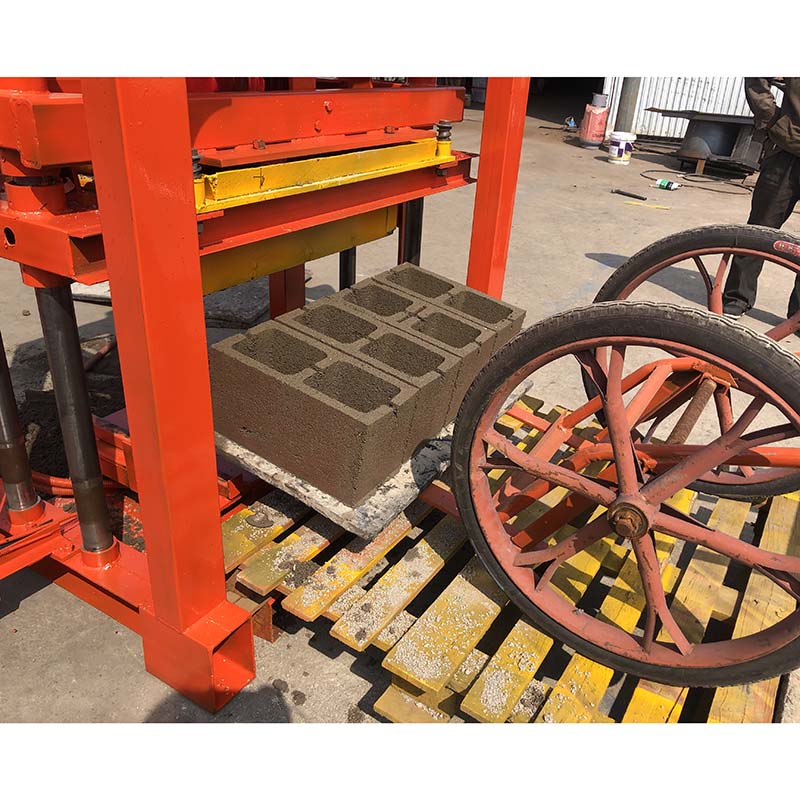
Image source:Aiweiblockmachine
Introduction
Ghana, with its rapidly growing population and urbanization, faces a pressing need for sustainable construction solutions. In recent years, the country has turned to block making machines as a key component of its strategy for addressing housing shortages, reducing environmental impact, and promoting economic growth. This article explores the role of block making machines in sustainable construction practices in Ghana and the transformative impact they have on the nation’s built environment.
1. The Housing Challenge in Ghana
Population growth: Ghana’s population has been steadily increasing, especially in urban areas. The surge in urbanization has led to a high demand for housing.
Housing deficit: According to the Ghana Statistical Service, Ghana’s housing deficit is estimated to be in the millions. This deficit underscores the urgent need for affordable and sustainable housing solutions.
2. Block Making Machines: A Sustainable Solution
Resource-efficient construction: Block making machines allow for the production of blocks using fewer raw materials compared to traditional bricks. This resource efficiency aligns with sustainability goals.
Energy-efficient production: Modern block making machines in Ghana often incorporate energy-efficient technologies, reducing the environmental footprint of block production.
3. Interlocking Blocks: An Innovative Approach
Strength and stability: Interlocking blocks, which do not require mortar for assembly, have gained popularity in Ghana due to their strength and stability. They are particularly suitable for regions prone to earthquakes.
Reduced waste: The production of interlocking blocks minimizes material waste compared to traditional bricks, contributing to sustainability.
4. Local Manufacturing and Economic Growth
Employment opportunities: The block making industry in Ghana has created employment opportunities, particularly for the youth and women, who are involved in various aspects of block production.
Local manufacturing: Supporting local manufacturers of block making machines boosts the domestic economy and reduces the reliance on imported machinery.
5. Government Initiatives and Policies
Affordable Housing Program: Ghana’s government has initiated programs like the Affordable Housing Program to encourage the use of locally produced blocks in housing projects, promoting affordability and sustainability.
Regulations and standards: The government has also introduced regulations and standards to ensure the quality and safety of blocks used in construction, fostering trust in the sector.
6. Challenges and Innovations
Access to technology: Ensuring that block making machines and knowledge about sustainable construction practices reach rural and underserved areas remains a challenge.
Skill development: Building capacity in block production and sustainable construction practices is crucial for the industry’s growth.
7. Case Studies: Sustainable Construction Projects in Ghana
The Appolonia City project: This large-scale mixed-use development near Accra incorporates sustainable construction principles, including the use of locally produced interlocking blocks.
Earthquake-resistant housing: In earthquake-prone areas like the Volta Region, interlocking blocks are being used to construct earthquake-resistant houses, providing safer living conditions for residents.
8. Future Prospects and Conclusion
Research and development: Continuous innovation and research are essential for improving block making technologies and furthering sustainable construction practices.
Affordability and scalability: The affordability and scalability of sustainable construction with block making machines in Ghana make it a promising solution for addressing the housing deficit while minimizing environmental impact.
In conclusion
Ghana’s embrace of block making machines and sustainable construction practices signifies a commitment to addressing its housing challenges in a way that is economically viable, socially responsible, and environmentally sustainable. As the nation continues to urbanize and strive for inclusive development, block making machines will play a pivotal role in shaping the future of its built environment.
